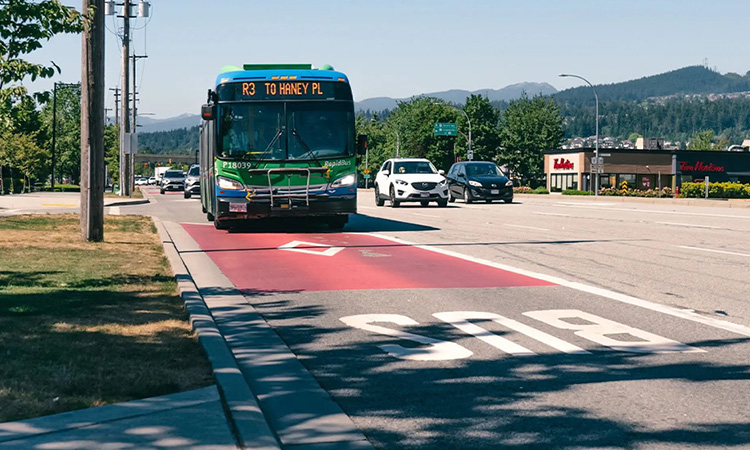TransLink’s latest report calls for increased investments in bus priority measures
- Like
- Digg
- Del
- Tumblr
- VKontakte
- Buffer
- Love This
- Odnoklassniki
- Meneame
- Blogger
- Amazon
- Yahoo Mail
- Gmail
- AOL
- Newsvine
- HackerNews
- Evernote
- MySpace
- Mail.ru
- Viadeo
- Line
- Comments
- Yummly
- SMS
- Viber
- Telegram
- Subscribe
- Skype
- Facebook Messenger
- Kakao
- LiveJournal
- Yammer
- Edgar
- Fintel
- Mix
- Instapaper
- Copy Link
Posted: 24 July 2023 | Intelligent Transport | No comments yet
TransLink’s new report urges immediate investments in bus priority measures to combat the effects of mounting traffic congestion on bus speed and reliability in Metro Vancouver.


Credit: TransLink
TransLink has released its 2023 Bus Speed and Reliability Report revealing the pressing need for accelerated investments in bus priority measures to counter the adverse effects of mounting traffic congestion on bus speed and reliability in Metro Vancouver.
Following the initial edition released in February 2023, which highlighted bus delays and their underlying causes, this new report offers a comprehensive overview of measures implemented to alleviate these delays. It also evaluates the effectiveness of these initiatives, providing valuable insights to guide future investment decisions.
“Getting people to take transit instead of driving means making transit as convenient and reliable as possible,” said TransLink CEO Kevin Quinn. “We look forward to continuing to invest in bus speed improvements so we can make transit the most convenient travel option in the region.”
Since 2019, TransLink has dedicated $40 million to initiatives aimed at bolstering bus speed and reliability. The results demonstrate that each of these investments has positively impacted bus speed and reliability, with several improvements recouping their costs through enhanced bus service operations. Certain measures even achieved a notable 35% increase in bus speed.
Southern Nevada receives $630,000 grant for equitable mobility infrastructure
Some examples of the successful bus speed and reliability improvements include the introduction of New RapidBus services, designated bus lanes, approach lanes and queue jumps, optimising the distances between bus stops, implementing turn restrictions and upgrading traffic signal systems.
Despite the substantial investment into bus priority measures since 2019, bus delays have resurged to pre-pandemic levels due to buses becoming trapped in worsening traffic congestion. The report’s findings will play a crucial role in shaping TransLink’s next Investment Plan update, expected to be released in 2024.
To achieve the necessary improvements, TransLink will maintain its collaboration with government partners to secure funding, devise plans and execute these measures effectively. With a focus on creating a seamless and reliable transit system, the organisation aims to address the challenges posed by growing traffic congestion and promote public transportation as the preferred mode of travel in Metro Vancouver.
If you liked this, you may also be interested in:
▶ Greater Manchester unveils ambitious Bus Strategy for a greener, inclusive future
Related topics
Accessibility, Passenger Experience, Public Transport, Traffic Management
Related modes
Bus & Coach
Related cities
Vancouver
Related countries
Canada
Related organisations
Translink
Related people
Kevin Quinn







